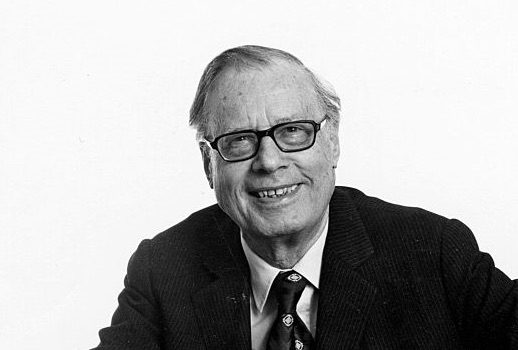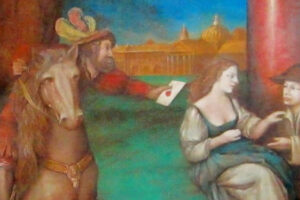

Review of Irving Kolodin in the March 21, 1959 Saturday Review:
It has been years since the fall of a final curtain on a work new to the Metropolitan Opera’s repertory was greeted with the spontaneous bravos and applause that acclaimed the conclusion of the latest one. What it plainly said was “Welcome Wozzeck,” which was only its due, of course, for the impression it made between “Aida” one night and “Boheme” another merely attested the incontestable-no comparable work for the musical theatre has been written since it was new in the 1920s.
In putting all its resources at the disposal of Alban Berg’s masterpiece, Rudolf Bing has discharged a debt, closed a file of unfinished Metropolitan business and perhaps, opened a vista of operatic things to come. Whether he has, in the process, incurred some debut of a strictly monetary sort will be known better after the scheduled repetitions (the $25 top for the benefit premiere left half the orchestra unsold, and a hurried call for “volunteers” to fill the empty seats). But there are times when even a business-minded opera management must be content to take the credit and let the cash go.
Taking one thing with another, Karl Böhm’s superbly cohesive direction is giving New York the best totality of the score it has yet heard. The previous efforts of Rosenstock at the City Center and Mitropoulos with the Philharmonic had distinctions relative to their surroundings, but Böhm’s marksmanship clearly exceeded that generally credited to [the]…. Philadelphia-based production in the Metropolitan in 1931. Considering that it has been woven into the texture of a repertory season, it attested to all-out cöoperation on all levels from stage hands to stage director. The results were equally triumphant for stage director Herbert Graf and conductor Böhm.
“Wozzeck,” of course, differs from virtually any prior creation for the musical theatre in being devoid of most elements considered ‘entertaining”: no arias, ballet, comic “relief.” etc. It has some moments of grim humor among the prevailing heartache, but it is, essentially, a relentless playing out of marked cards held in the hands of Destiny. It is hard and unyielding, tawdry and even bestial; but, even as Marie turns to the Bible for a prefiguring of her sensualism, and Wozzeck cries out to his Maker for pity, so we must consider that even its lowliest creatures are human flesh, and the blood that is spilled in vengeance has been mingled in the eternal mystery that produced a child, the helpless victim of it all.
If Berg had responded to this challenge in terms of erotic (of which there is virtually nothing), or of the psychotic (of which there is somewhat more) the results would have long since dwindled in interest, ceased to be the spectre haunting the Metropolitan that it has been for all this time. But every new hearing affirms in greater detail the totality of sorrowing and exaltation, which has been in it from the start. There comes a moment in Act II (the orchestral interlude after Wozzeck realizes he is a man betrayed) in which Berg” somewhat cautious and constrained use of his idiom dissolves under the surge of emotion and he begins to move his tonal resources with a freedom and ease that results in nothing more nor less than poignant, purposeful music. The following scenes are mostly shorter, the momentum cumulative. With or without the increasingly clear suggestions of tonality, as in the famous crescendo on the unison C we are in the grip of an experience that may never attain “popularity,” but challenges anyone to hear it out without taking it in.
Of top quality in this cast was something a believable “Wozzeck” cannot do without-a powerfully sung, vividly acted Wozzeck by Hermann Uhde. He has excellent stature for the role, a stiffly military bearing that crumbles affectingly at the appropriate time, plus vocal sonority to make his characterization complete. He has, also (for a man born in Bremen) a surprisingly adept command of the English text-the standard one of Eric Blackall and Vida Harford, somewhat amended-reflecting his foresight in being born of an American mother and a German father.
Were everybody else of this quality, the Metropolitan’s “Wozzeck” cast would be considered a string of well-matched jewels; but none, at least, were paste. Eleanor Steber’s Marie is, for a singer of her background, not bad; but for Berg, it is not very good. Her puffy, well-fleshed outlines scarcely suggested deprivation and poverty, her vocalism, perversely, better than it need be. Clearly, her vocal manners are so ingrained that an unvocalized sound is resisted, even when it is the essence of what Berg called “bel parlare” rather than the time-honored “bel canto.” She made a searing effect in certain passages, especially in the high-lying C-B at the climax of her Bible-reading scene in Act III, and puts in us her debt for an all-out effort. But for Marie…Steber is rather a crude suggestion of the elemental.
The others in the mainly male cast range from the picturesque, if Peter Piperish, doctor of Karl Dönch, to the spirited, but thick-voiced captain of Paul Franke, and the muscular, guttural sounding Drum Major of Kurt Baum. Smaller roles were capably performed by Ezio Flagello (an Apprentice), Charles Anthony (Andreas), and Alice Plotkin as the mute offspring of Marie and Wozzeck. There was admirable precision in the orchestral playing, and enormous spirit, though Böhm’s inclination to a heavy brass sound created a curtain of sonority between the stage and the auditorium that had more to do with quality than quantity. But this is a conductor with a sure comprehension of the part that detail and nuance plays in a properly realization of Berg’s closely written score.
Whether the whole gained from the English text is at least debatable, by Act III it didn’t really matter what language was being sung, so long as “blut” was “blood” and “hopp-hopp” was ‘hopp-hopp.” But no one without a sense of total direction could have made much of the narrative, word by word, and the English text was best when it came closest to the German original. As a final detail, Caspar Neher’s scenery qualified as workable on the practically machineless stage and was mobile within the split-timing decreed by the orchestral interludes. But it added little in atmosphere or mood. Unlike Robert Edmond Jones’s stylized “expressionism” of the old Philadelphia venture, this was blandly represntational and stylistically nondescript.
Hearing “Wozzeck” with so much high-pressured effort expended upon it, with a complement of highly talented in not wholly suitable people laboring on its behalf, stimulates a curiosity for much more knowledge about it than we currently possess. It is evident that many musical phrases and thematic elements are passed back and forth as the work progresses, and the interludes assume increasingly more importance. The last interlude, a dirge for the collapsed world of Wozzeck and Marie, is tensely, proudly beautiful and expressive, giving rise to a curiosity as to how it is really put together. If the present production stimulates more question of the sort-and, perhaps, a few answers-it will have given cause to thank Rudolf Bing far beyond another new Puccini production or even “Cav” and “Pag.”























Comments